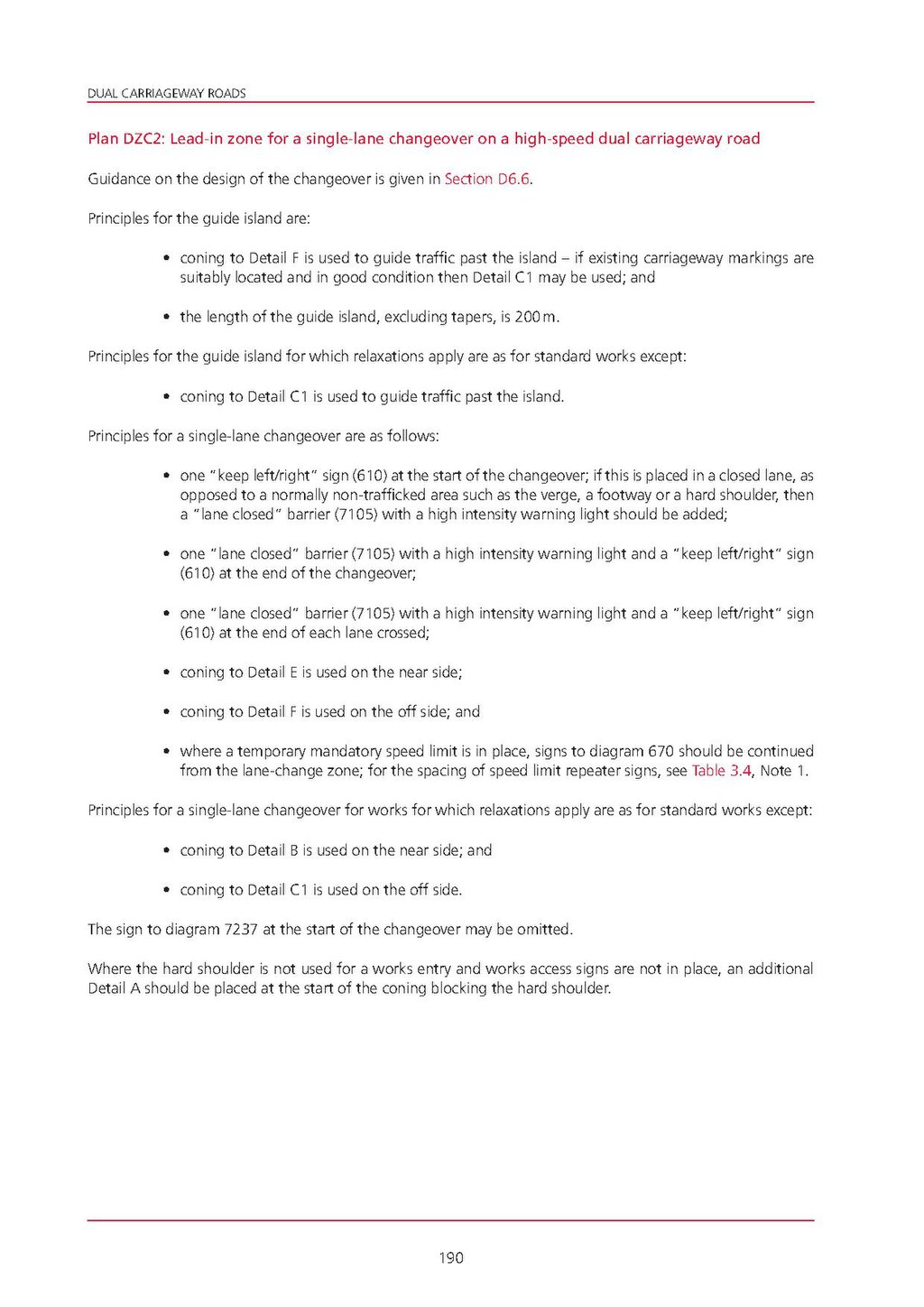DUAL CARRIAGEWAY ROADS
Plan DZC2: Lead-in zone for a single-lane changeover on a high-speed dual carriageway road Guidance on the design of the changeover is given in Section D6.6.
Principles for the guide island are:
- coning to Detail F is used to guide traffic past the island — if existing carriageway markings are suitably located and in good condition then Detail C1 may be used, and
- the length of the guide island, excluding tapers, is 200m.
Principles for the guide island for which relaxations apply are as for standard works except:
- coning to Detail C1 is used to guide traffic past the island.
Principles for a single-lane changeover are as follows:
- one "keep left/right" sign (610) at the start of the changeover; if this is placed in a closed lane, as opposed to a normally non-trafficked area such as the verge, a footway or a hard shoulder, then a "lane closed" barrier (7105) with a high intensity warning light should be added,
- one "lane closed" barrier (7105) with a high intensity warning light and a "keep left/right" sign (610) at the end of the changeover;
- one "lane closed" barrier (7105) with a high intensity warning light and a "keep left/right" sign (610) at the end of each lane crossed;
- coning to Detail E is used on the near side,
- coning to Detail F is used on the off side, and
- where a temporary mandatory speed limit is in place, signs to diagram 670 should be continued from the lane-change zone; for the spacing of speed limit repeater signs, see Table 3.4, Note 1.
Principles for a single-lane changeover for works for which relaxations apply are as for standard works except:
- coning to Detail B is used on the near side, and
- coning to Detail C1 is used on the off side.
The sign to diagram 7237 at the start of the changeover may be omitted.
Where the hard shoulder is not used for a works entry and works access signs are not in place, an additional Detail A should be placed at the start of the coning blocking the hard shoulder.
190
